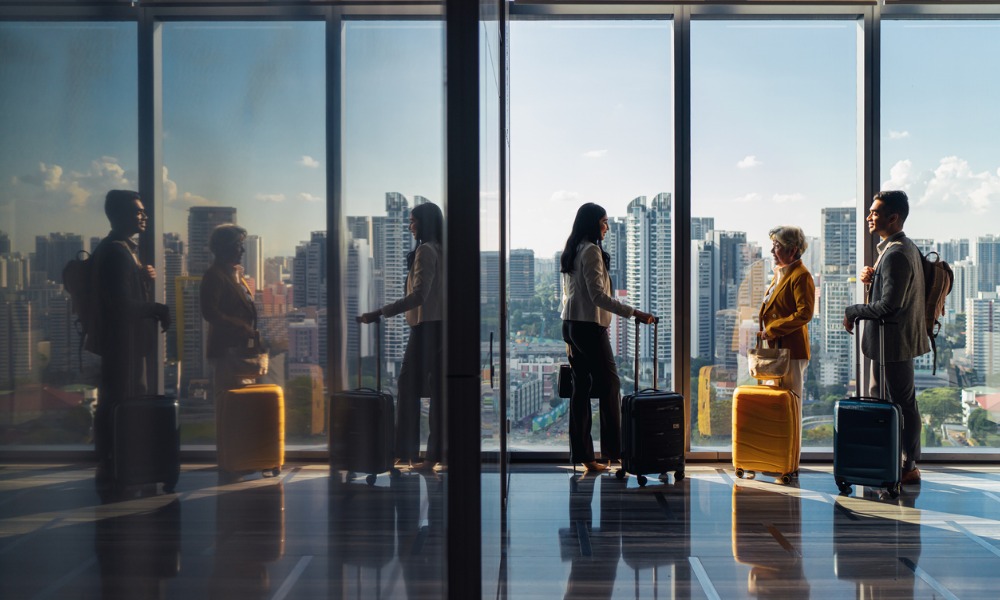
'Organizations have an obligation to their employees when they're away from home'

Many business travellers are experiencing mental health troubles during their trips, and they want employers to provide better supports, according to a recent report.
This comes as nearly half (48%) of Canadians business travellers say they are travelling more this year, up from 43% in the previous year, reports World Travel Protection (WTP).
With this trend, however, about a third are suffering from stress (34%), exhaustion (34%), anxiety (32%) and homesickness (32%).
“Organizations have an obligation to their employees when they’re away from home, both from a physical safety and mental health perspective,” says Joel Lockwood, regional chief medical officer (Americas) at WTP. “Uncertainty and lack of support from employers can have a significant and detrimental impact on an employee's mental well-being, potentially causing significant distress.”
Women business travelers report being more susceptible to feelings of anxiety, stress, and homesickness during business travel than men (36% for women vs. 28% for men).
Meanwhile, men are more likely to report feelings of loneliness (30% for men vs. 18% for women).
Business travel will never return to normal, according to a previous report.
Amid all these mental troubles, 51% of Canadian business travellers say their employer could do more to keep them safe, and, and 58% would like their employer to check in with them more often when traveling, reports WTP.
Just 30% say their employer provides regular check-ins to ensure their safety and comfort, according to WTP’s survey of 1,000 adults who travel for business at least once a year in the US (500) and Canada (500), conducted Feb. 1-8, 2024.
To ease their mental troubles, business travellers are turning to “bleisure” – combining work travel with leisure time.
Over a quarter (26%), of Canadian business travellers say they feel less burned out and stressed if a work trip allows for a personal day before, during, or after a trip, and 21% say they would be more likely to stay at a company that allowed for this.
Also, 22% plan to add personal time to a business trip this year.
However, 20% admit not knowing whether their company’s insurance covers personal time added to a business trip.
To help employees’ going on a business trip, employers can – through a travel risk management company – set workers’ expectations before the trip, says . Employers can also encourage workers to have daily family or next-of-kin video calls, download a wellness or meditation app to employees’ phones, and have a solid and well-communicated action plan in case of an emergency, he says.
Here’s how to optimize business travel in 2024.
Employers can also help employees avoid burnout and stay mentally well during a work trip by doing the following, according to a Business Insider report: